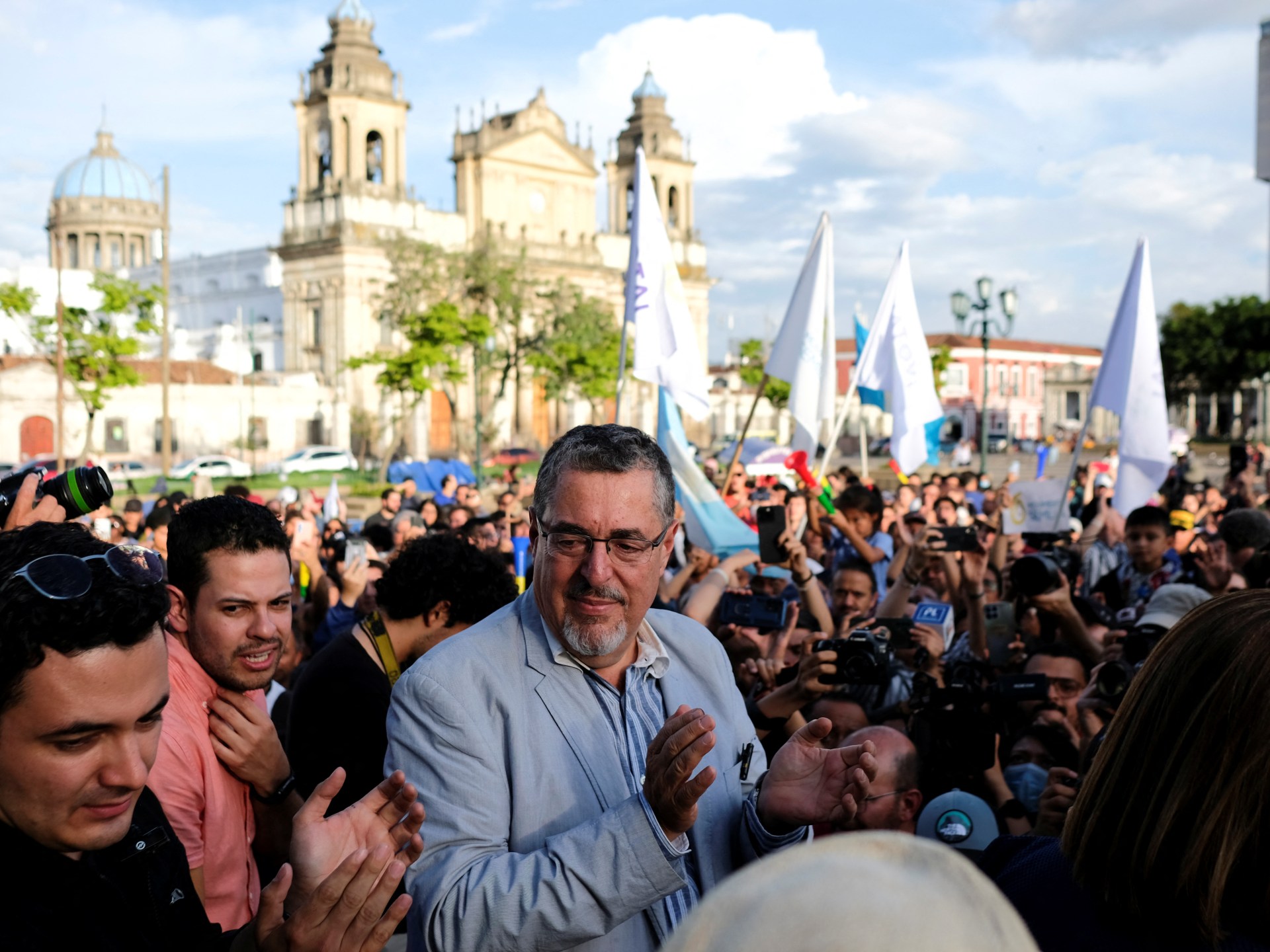The Organization of American States (OAS) has accused prosecutors in Guatemala of taking steps that appear to be aimed at preventing President-Elect Bernardo Arevalo from taking power.
In a speech on Friday, Eladio Loizaga, leader of the OAS’s election observation mission, emphasised that the August 20 presidential election had been fair and accurate.
But he denounced subsequent actions taken against the election’s victor, Arevalo, and his political party, the Movimiento Semilla or Seed Movement.
“Given the documented conditions, it is impossible that the Electoral Observation Mission would arrive at any other conclusion than that, in this very specific case, the mechanisms and tools of Guatemalan justice are being used politically,” Loizaga told a special meeting of the OAS’s permanent council.
Loizaga added that the prosecutors’ efforts have been “selective, disproportionate and clearly tailored to the political moment”.
The prosecutors have repeatedly sought to suspend the Seed Movement’s legal status over allegations that the membership signatures used to form the party years ago were fraudulent. The Seed Movement was organised in 2017 and legally recognised in 2018.
The latest suspension came on Monday, just hours before the Supreme Electoral Tribunal certified Arevalo’s victory.
The move prevents members of the Seed Movement from taking key government posts, including on congressional commissions.
On Wednesday, Guatemala’s Congress, controlled by the current ruling party, responded to the party’s suspension by designating all Seed Movement representatives as independents.
Those representatives included Arevalo himself, as he currently serves as a congressman. He is set to be sworn into office as president in January.
Román Castellanos, another Seed Movement legislator, said that the party’s suspension would result in its members losing the presidency of the only congressional committee they helmed, as well as other leadership positions.
On Friday, Arevalo once again held a press conference to blast the government’s actions.
“We are seeing a coup d’etat in motion in which the justice apparatus is used to violate justice,” Arevalo said.
“We alert the Guatemalan people that there are still four months, during which these political mafias will try to consummate the coup d’etat,” he added. “The people’s resistance is legitimate.”
The OAS likewise issued some of its most strongly worded criticism to date, rejecting the Seed Movement’s suspension.
“The suspension appears to seek to prevent the president-elect, the vice-president-elect, and other elected officials from taking office,” it wrote in a Thursday press release.
Arevalo, the son of a previous Guatemalan president, focused his campaign on issues such as inequality and corruption.
He was initially a dark horse candidate, not expected to proceed beyond the first round of voting on June 25.
But after he secured a spot in the August 20 presidential run-off, he and his party have faced a series of legal actions that have raised eyebrows about Guatemala’s election integrity.
Rival parties sought to suspend the certification of the first round of voting. And when a review upheld June’s results, prosecutors successfully petitioned to suspend the Seed Movement in July, a move that was ultimately overturned as a violation of election law.
Prosecutors also requested that police raid the Seed Movement’s headquarters, as well as the offices of Guatemala’s election authority.
Arevalo nevertheless beat conservative rival Sandra Torres in the second round of voting on August 20 by more than 20 points.
Still, the Guatemalan attorney general’s office has promised to continue its investigation, pursuing the second suspension in August. Torres, meanwhile, has yet to concede the election. Instead, her party, National Unity of Hope, has filed a complaint alleging irregularities in the final vote tally.
These moves have prompted concerns over “lawfare”, the practice of weaponising a country’s justice system for political aims.
Sumber: www.aljazeera.com
 Skip to content
Skip to content

